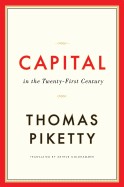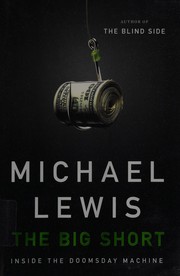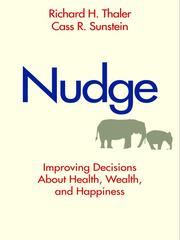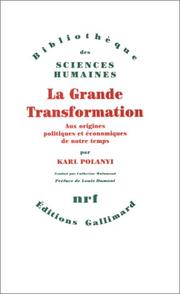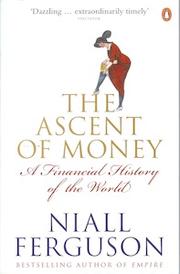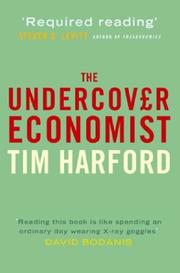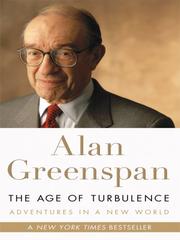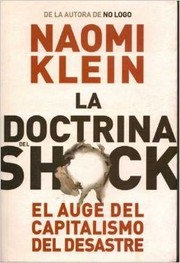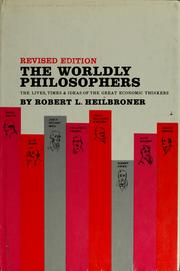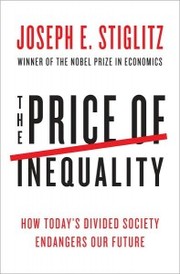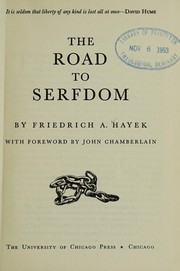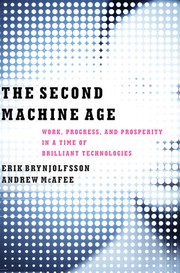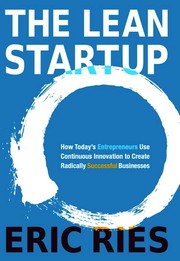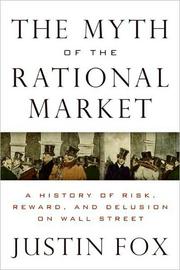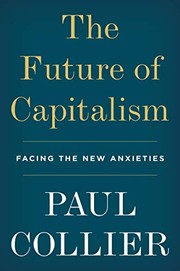Are you eager to expand your knowledge of the economy and its inner workings? Look no further! We’ve curated a list of the 20 best books on economy that are sure to captivate your attention and provide valuable insights. Whether you’re a seasoned economist or just starting to delve into the world of finance, these economy books cover a wide range of topics, from globalization to financial crises and economic theory. Get ready to explore the complexities of the economy and gain a deeper understanding of its impact on our daily lives with these thought-provoking reads.
Contents
- 1 20 Best Economy Books
- 2 Capital in the Twenty-First Century
- 3 Freakonomics
- 4 The Big Short
- 5 Nudge
- 6 Thinking, Fast and Slow
- 7 The Wealth of Nations
- 8 The Great Transformation
- 9 The Ascent of Money
- 10 The Undercover Economist
- 11 The Age of Turbulence
- 12 The Shock Doctrine
- 13 The Worldly Philosophers
- 14 The End of Alchemy
- 15 The Price of Inequality
- 16 The Road to Serfdom
- 17 The Second Machine Age
- 18 The Lean Startup
- 19 The Innovator’s Dilemma
- 20 The Myth of the Rational Market
- 21 The Future of Capitalism
- 22 Final Thoughts on Best Economy Books
- 23
20 Best Economy Books
Capital in the Twenty-First Century
by Thomas Piketty
Capital in the Twenty-First Century is a compelling book on the economy by Thomas Piketty that delves into the dynamics of wealth and inequality. Piketty offers a comprehensive analysis of historical data to illustrate how economic inequality has evolved over the centuries, emphasizing the concentration of wealth among the top percentile.
Through meticulous research and engaging prose, Piketty explores the various factors contributing to this disparity, including the rate of return on capital versus economic growth. He also discusses the implications of these inequalities on society and offers potential solutions to address them.
This thought-provoking economy book challenges conventional economic theories and sheds light on the pressing issue of wealth distribution in the modern era. Whether you’re an economist or a casual reader interested in the dynamics of wealth and inequality, Piketty’s Capital in the Twenty-First Century is a must-read that provides valuable insights into the complexities of the economic landscape.
Freakonomics
by Steven D. Levitt and Stephen J. Dubner
Freakonomics is a fascinating book about the hidden side of human behavior, written by economist Steven D. Levitt and journalist Stephen J. Dubner. This non-traditional book on economy takes a fresh and unconventional approach to the study of economics, exploring the unexpected and often surprising ways in which economic principles shape our world.
Levitt and Dubner use a series of real-world examples and case studies to challenge conventional wisdom and shed new light on various social phenomena, from crime rates to parenting techniques. They delve into the intricate web of incentives and motivations that drive human behavior, ultimately revealing the underlying economic forces at play in our everyday lives.
Through engaging storytelling and thought-provoking analysis, Freakonomics offers readers a thought-provoking and entertaining look at the complex interactions of human behavior and economy. This book about economy is a must-read for anyone curious about the hidden dynamics that shape the world around us.
The Big Short
by Michael Lewis
The Big Short by Michael Lewis is a gripping book about the economy that delves into the 2008 financial crisis. Lewis takes readers on a journey through the world of finance, introducing them to a group of eccentric and brilliant investors who foresaw the collapse of the housing market and bet against it. Through their eyes, readers gain insight into the complexities of the economy, the risky behavior of big banks, and the widespread ignorance that allowed the crisis to unfold.
With his signature wit and storytelling prowess, Lewis makes complex financial concepts accessible and entertaining. He expertly navigates the intricacies of mortgage-backed securities and credit default swaps, ensuring that even those with little knowledge of the economy can understand the events leading up to the crisis. The Big Short is a compelling and eye-opening read that offers a critical look at the book on economy and the individuals who saw the impending disaster when others did not.
Nudge
by Richard H. Thaler and Cass R. Sunstein
Nudge, a book on economy by Richard H. Thaler and Cass R. Sunstein, presents a compelling argument for the power of small, subtle changes in policy and decision-making. The authors explore the concept of ‘choice architecture’ and how it can be used to influence individuals’ decisions without restricting their freedom. Through real-world examples and behavioral economics principles, Thaler and Sunstein demonstrate how small nudges can lead to significant improvements in areas such as healthcare, retirement savings, and environmental conservation.
This economy book offers valuable insights into the way people make decisions and how policymakers can use this knowledge to design better systems and policies. The authors emphasize the importance of understanding human behavior and incorporating it into the design of choices and decisions. Nudge is a thought-provoking and informative read for anyone interested in behavioral economics, public policy, and the ways in which small changes can have a big impact on society.
Thinking, Fast and Slow
by Daniel Kahneman
Thinking, Fast and Slow by Daniel Kahneman is a captivating exploration of the human mind and the two systems that drive the way we think: the fast, intuitive and emotional system, and the slow, deliberate and logical system. Through a series of thought-provoking experiments and examples, Kahneman delves into the cognitive biases and errors that affect our decision-making processes, shedding light on how our minds often rely on shortcuts and heuristics that can lead to flawed judgments. This insightful book offers a fascinating glimpse into the workings of the human brain, unraveling the mysteries of why we make certain choices and how our perceptions can be easily swayed by various factors.
Whether you’re a psychology enthusiast, a business professional, or simply curious about the complexities of the human mind, this book about economy offers valuable insights into the ways we make decisions in various aspects of our lives. With its engaging storytelling and compelling research, Thinking, Fast and Slow is a must-read for anyone eager to expand their understanding of human behavior and decision-making processes.
The Wealth of Nations
by Adam Smith
The Wealth of Nations by Adam Smith, often referred to as a seminal book on economy, is a cornerstone of modern economic theory. Published in 1776, Smith’s work revolutionized the way we think about wealth, productivity, and the division of labor. In this book about economy, Smith discusses the concept of free markets and the idea that individuals, acting in their own self-interest, can collectively contribute to the overall prosperity of society. He also delves into the role of government in regulating and promoting economic growth, as well as the importance of specialization and the division of labor in driving economic progress. The Wealth of Nations remains a timeless classic, offering valuable insights into the fundamental principles of economics and influencing generations of economists and policymakers. Whether you’re a student of economics or simply interested in understanding the forces that shape our world, this economy book is essential reading.
The Great Transformation
by Karl Polanyi
The Great Transformation by Karl Polanyi is a groundbreaking book on economy that challenges conventional thinking about the role of markets in society. Published in 1944, it examines the rise of capitalism and its impact on social and political structures. Polanyi argues that the commodification of land, labor, and money has led to social dislocation and environmental degradation. He presents a critical analysis of the market system, emphasizing the need for state intervention to protect society from the harmful effects of unchecked capitalism. Through a historical and anthropological lens, Polanyi demonstrates how the market economy has disrupted traditional social relations and led to the subjugation of human needs to the demands of the market. This book about economy offers a thought-provoking perspective on the dynamics of capitalism and the challenges it poses to human society. It remains a relevant and influential work that continues to shape discussions about the economy book and society today.
The Ascent of Money
by Niall Ferguson
The Ascent of Money by Niall Ferguson is a compelling exploration of the history of finance and its impact on the world. This book on economy delves into the evolution of money, credit, and banking, offering a fascinating look at how these financial systems have shaped societies and civilizations throughout time. Ferguson skillfully weaves together economic theory, historical anecdotes, and personal stories to provide a comprehensive understanding of the role of money in driving human progress and shaping global events. From the origins of banking in ancient Mesopotamia to the rise of the stock market and the current era of globalization, Ferguson takes readers on a captivating journey through the annals of economic history. Whether you’re a seasoned investor, a student of history, or simply curious about the forces that drive the world’s economies, this book about economy is a must-read. The Ascent of Money offers a thought-provoking and accessible exploration of the complex and influential world of finance.
The Undercover Economist
by Tim Harford
The Undercover Economist by Tim Harford is a fascinating book on the economy that delves into the hidden workings of everyday life. In this engaging and informative read, Harford takes readers on a journey through the intricacies of the economy, using real-life examples to illustrate complex economic concepts. Through his engaging writing style, Harford reveals the economic principles at play in everything from coffee shops to supermarkets, offering readers a fresh perspective on the world around them.
With a keen eye for detail and a knack for making the complex seem simple, Harford demystifies the economy and sheds light on the forces that shape our daily lives. Whether you’re a seasoned economist or a curious novice, The Undercover Economist offers valuable insights into the economic forces that drive our world. This book about economy is a must-read for anyone looking to gain a deeper understanding of the hidden workings of the world around them.
The Age of Turbulence
by Alan Greenspan
The Age of Turbulence by Alan Greenspan is a fascinating book on economy that provides a unique insight into the world of finance and economics. Greenspan, former chairman of the Federal Reserve, shares his personal experiences and observations from his time in office, offering a behind-the-scenes look at the major events and economic crises that shaped the global economy.
Through engaging storytelling and thoughtful analysis, Greenspan delves into the complexities of monetary policy, financial markets, and the impact of globalization on the economy. He also explores the role of technology, innovation, and geopolitical forces in shaping the modern economy.
Readers will gain a deeper understanding of the interconnectedness of the global economy and the challenges and opportunities it presents. With his wealth of knowledge and expertise, Greenspan offers valuable insights that are relevant to anyone interested in understanding the dynamics of the economy and its impact on the world.
The Shock Doctrine
by Naomi Klein
The Shock Doctrine by Naomi Klein is a compelling book about the impact of economic policies on society. The book delves into the concept of ‘disaster capitalism’ and how it has been used to exploit crises and disasters for economic gain. Klein argues that powerful institutions and governments have taken advantage of moments of shock, such as natural disasters or political upheaval, to implement radical economic policies that benefit the elite at the expense of the majority. Through detailed case studies and extensive research, Klein illustrates how these tactics have been used around the world to further the interests of big business and undermine democracy.
With a critical and thought-provoking approach, The Shock Doctrine provides a deep insight into the intersection of politics, economics, and power dynamics. It is a must-read for anyone interested in understanding the impact of economic policies on society and the ways in which they can be manipulated for private gain. This book about economy is essential for anyone seeking to understand the dynamics of power and inequality in the modern world.
The Worldly Philosophers
by Robert L. Heilbroner
The Worldly Philosophers by Robert L. Heilbroner is a captivating book on economy that takes readers on a journey through the lives and ideas of the greatest economic thinkers of the past. This book about economy provides a compelling overview of the evolution of economic thought, exploring the influential theories of thinkers such as Adam Smith, Karl Marx, and John Maynard Keynes.
Heilbroner’s engaging narrative style brings these economic philosophers to life, offering readers insight into the historical and social context of their ideas and the impact they have had on the world. Through vivid storytelling and thought-provoking analysis, The Worldly Philosophers provides a comprehensive understanding of the complexities of the economy and the enduring relevance of economic theory.
For anyone interested in gaining a deeper understanding of the economy and the ideas that have shaped it, this economy book is a must-read. Heilbroner’s exploration of the lives and philosophies of these great thinkers offers a fascinating and accessible introduction to the world of economics.
The End of Alchemy
by Mervyn King
The End of Alchemy by Mervyn King is a thought-provoking book about the intricacies of the financial system. King, a former governor of the Bank of England, provides a comprehensive analysis of the flaws and vulnerabilities of the financial system, offering insightful solutions for a more stable and resilient economy. This book on economy is a compelling read, as King delves into the complexities of financial regulation, the role of central banks, and the challenges of managing a global economy. He presents a compelling argument for rethinking the current financial structure and offers a fresh perspective on how to avoid future financial crises. With his expertise and engaging writing style, King manages to break down complex economic concepts in a way that is accessible to both experts and general readers. The End of Alchemy is a must-read for anyone interested in understanding the intricacies of the financial system and the ways in which it can be reformed for a more secure and stable economy.
The Price of Inequality
by Joseph E. Stiglitz
The Price of Inequality by Joseph E. Stiglitz is a thought-provoking book on the economy that delves into the social and economic consequences of wealth disparity. Stiglitz, a Nobel Prize-winning economist, examines how inequality stifles economic growth, undermines democracy, and erodes social cohesion. Drawing on extensive research and real-world examples, he argues that the concentration of wealth in the hands of a few is not only unjust but also harmful to the overall well-being of society.
Stiglitz presents a compelling case for why reducing inequality is not only a moral imperative but also an economic necessity. He offers insightful analysis on the roots of inequality and proposes policy solutions to address the issue, such as progressive taxation and investment in education and social programs. The Price of Inequality is a timely and important book about the economy that challenges conventional wisdom and offers a fresh perspective on one of the most pressing issues of our time.
The Road to Serfdom
by Friedrich Hayek
The Road to Serfdom by Friedrich Hayek is a classic book about the economy and the dangers of government control. Hayek warns against the rise of socialism and the central planning of economies, arguing that it ultimately leads to a loss of individual freedom. He explains how government intervention in the economy can lead to a slippery slope towards tyranny and the erosion of personal liberties. Hayek’s insights are as relevant today as they were when the book was first published in 1944, and he makes a compelling case for the importance of free markets and limited government intervention. The Road to Serfdom is a thought-provoking and timely read for anyone interested in understanding the potential consequences of excessive government control over the economy.
The Second Machine Age
by Erik Brynjolfsson and Andrew McAfee
The Second Machine Age by Erik Brynjolfsson and Andrew McAfee is a thought-provoking book about the impact of technological advancement on the world’s economic landscape. As a pioneering book on the challenges and opportunities brought about by the rapid advancements in technology, it delves into the ways in which automation, artificial intelligence, and digitalization are reshaping the economy.
Brynjolfsson and McAfee present a compelling argument for the potential of these technological advancements to drive economic growth and improve living standards, but also warn of the potential for widening inequality and job displacement. The authors provide insightful analysis and real-world examples to illustrate their points, making the book a captivating and enlightening read for anyone interested in the intersection of technology and the economy.
Overall, The Second Machine Age is an essential read for anyone looking to understand the profound impact of technology on the modern economy and society. It is a must-read book about the economy for those seeking to navigate the challenges and opportunities presented by the digital age.
The Lean Startup
by Eric Ries
The Lean Startup by Eric Ries is a groundbreaking book on economy that challenges traditional business practices and introduces a new approach to creating and managing successful startups. Ries advocates for a method that focuses on rapid iteration, customer feedback, and a scientific approach to building a sustainable business. The book emphasizes the importance of testing ideas quickly, adapting to feedback, and making data-driven decisions to minimize waste and maximize efficiency. Ries introduces the concept of the ‘build-measure-learn’ feedback loop, which is the cornerstone of the Lean Startup methodology. Through real-world examples and case studies, Ries provides practical insights and actionable strategies for entrepreneurs and business leaders looking to navigate the unpredictable landscape of the market. Whether you’re a seasoned entrepreneur or a budding startup enthusiast, this economy book will revolutionize the way you approach business and innovation.
The Innovator’s Dilemma
by Clayton M. Christensen
The Innovator’s Dilemma by Clayton M. Christensen is a groundbreaking book on the challenges faced by companies in the business world. Christensen introduces the concept of disruptive innovation, where new technologies and business models disrupt existing markets and industries. He argues that established companies often fail to adapt to these disruptive changes because they are focused on sustaining their current business models and satisfying existing customers. This creates a dilemma for companies, as they must either embrace disruptive innovation and risk cannibalizing their existing business, or ignore it and risk becoming obsolete.
This thought-provoking book about economy has had a profound impact on how businesses approach innovation and change. Christensen’s insights have been used by companies worldwide to understand the dynamics of their industries and make strategic decisions that will enable them to thrive in an ever-changing marketplace. With its compelling analysis and real-world examples, The Innovator’s Dilemma is a must-read for anyone interested in the challenges of innovation and competition in the modern economy.
The Myth of the Rational Market
by Justin Fox
The Myth of the Rational Market by Justin Fox is a captivating book on the economy that challenges the long-held belief in the efficiency of financial markets. Through a combination of historical analysis and compelling storytelling, Fox delves into the world of behavioral economics, revealing the irrationality and unpredictability at the core of market behavior. He explores the rise of the efficient market hypothesis and its impact on investment strategies, while also examining the psychological and emotional factors that drive market fluctuations.
With a keen eye for detail and a knack for making complex economic theories accessible, Fox paints a vivid picture of the financial world, shedding light on the human element behind market trends and crashes. Whether you’re a seasoned investor or simply curious about the inner workings of the economy, this thought-provoking book about the economy is sure to challenge your perceptions and broaden your understanding of the intricate forces at play in the financial sphere.
The Future of Capitalism
by Paul Collier
The Future of Capitalism by Paul Collier is a thought-provoking book on the economy that challenges the current state of capitalism and offers insightful solutions for its future. Collier, a renowned economist, delves into the pressing issues of inequality, globalization, and the erosion of social cohesion, providing a comprehensive analysis of the shortcomings of the current economic system. He emphasizes the importance of redefining capitalism to address the growing disparities and restore trust in the market economy.
Through a combination of rigorous research and compelling arguments, Collier presents a compelling case for reshaping capitalism to ensure its sustainability and inclusivity. His pragmatic approach offers a refreshing perspective on the challenges facing modern economies, making this book a must-read for anyone interested in the future of our economic system. The Future of Capitalism is an essential read for policymakers, economists, and anyone concerned about the direction of our economy.
Final Thoughts on Best Economy Books
Exploring the 20 best books about Economy is an enriching journey that delves into the complexities and dynamics of the global financial landscape. From classic economic theories to modern-day analyses, these books offer valuable insights into the forces that shape our economies. Whether you’re a student, professional, or simply curious about the world of finance, these books provide a comprehensive understanding of economic principles and their real-world implications. Dive into these compelling reads and expand your knowledge of the fascinating world of economy.
Which book about Economy is best?
The best book on Economy can vary with personal preference, but three widely recommended titles are:
- Capital in the Twenty-First Century by Thomas Piketty,
- Freakonomics by Steven D. Levitt and Stephen J. Dubner,
- The Big Short by Michael Lewis.
Each offers valuable insights and could be a great starting point.
What are the best books to learn about Economy?
For those looking to learn about Economy, there is a wealth of literature that can provide a comprehensive understanding of the subject. Some of the most highly recommended books include:
- Capital in the Twenty-First Century by Thomas Piketty,
- Freakonomics by Steven D. Levitt and Stephen J. Dubner,
- The Big Short by Michael Lewis,
- Nudge by Richard H. Thaler and Cass R. Sunstein,
- Thinking, Fast and Slow by Daniel Kahneman,
- The Wealth of Nations by Adam Smith,
- The Great Transformation by Karl Polanyi,
- The Ascent of Money by Niall Ferguson,
- The Undercover Economist by Tim Harford,
- The Age of Turbulence by Alan Greenspan
These books offer a range of perspectives on Economy, covering various aspects and approaches to the subject.
What are the best books about Economy?
The best books about Economy are:
- Capital in the Twenty-First Century by Thomas Piketty,
- Freakonomics by Steven D. Levitt and Stephen J. Dubner,
- The Shock Doctrine by Naomi Klein,
- The Worldly Philosophers by Robert L. Heilbroner,
- The Ascent of Money by Niall Ferguson,
- The Wealth of Nations by Adam Smith.
Each offers unique insights into the subject. While these books about Economy are highly regarded, it’s important to note that any list of ‘best’ books is subjective and reflects a range of opinions.
What are the best Economy books of all time?
Choosing the best Economy books of all time can vary depending on who you ask, but five titles that are often celebrated include
- Capital in the Twenty-First Century by Thomas Piketty,
- Freakonomics by Steven D. Levitt and Stephen J. Dubner,
- Thinking, Fast and Slow by Daniel Kahneman,
- The Ascent of Money by Niall Ferguson,
- and The Shock Doctrine by Naomi Klein.
Each of these books has made a significant impact in the field of Economy and continues to be influential today.

